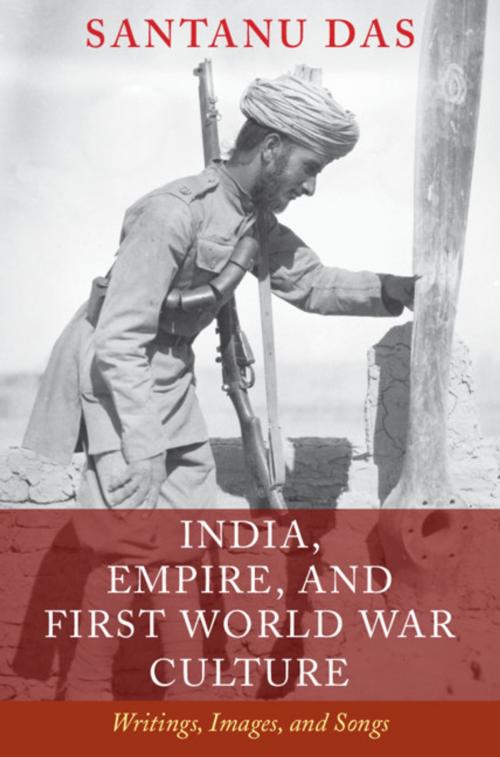India, Empire, and First World War Culture
Writings, Images, and Songs
Fiction & Literature, Literary Theory & Criticism, British| Author: | Santanu Das | ISBN: | 9781108631938 |
| Publisher: | Cambridge University Press | Publication: | September 13, 2018 |
| Imprint: | Cambridge University Press | Language: | English |
| Author: | Santanu Das |
| ISBN: | 9781108631938 |
| Publisher: | Cambridge University Press |
| Publication: | September 13, 2018 |
| Imprint: | Cambridge University Press |
| Language: | English |
Based on ten years of research, Santanu Das's India, Empire, and First World War Culture: Writings, Images, and Songs recovers the sensuous experience of combatants, non-combatants and civilians from undivided India in the 1914–1918 conflict and their socio-cultural, visual, and literary worlds. Around 1.5 million Indians were recruited, of whom over a million served abroad. Das draws on a variety of fresh, unusual sources - objects, images, rumours, streetpamphlets, letters, diaries, sound-recordings, folksongs, testimonies, poetry, essays, and fiction - to produce the first cultural and literary history, moving from recruitment tactics in villages through sepoy traces and feelings in battlefields, hospitals, and POW camps to post-war reflections on Europe and empire. Combining archival excavation in different countries across several continents with investigative readings of Gandhi, Kipling, Iqbal, Naidu, Nazrul, Tagore, and Anand, this imaginative study opens up the worlds of sepoys and labourers, men and women, nationalists, artists, and intellectuals, trying to make sense of home and the world in times of war.
Based on ten years of research, Santanu Das's India, Empire, and First World War Culture: Writings, Images, and Songs recovers the sensuous experience of combatants, non-combatants and civilians from undivided India in the 1914–1918 conflict and their socio-cultural, visual, and literary worlds. Around 1.5 million Indians were recruited, of whom over a million served abroad. Das draws on a variety of fresh, unusual sources - objects, images, rumours, streetpamphlets, letters, diaries, sound-recordings, folksongs, testimonies, poetry, essays, and fiction - to produce the first cultural and literary history, moving from recruitment tactics in villages through sepoy traces and feelings in battlefields, hospitals, and POW camps to post-war reflections on Europe and empire. Combining archival excavation in different countries across several continents with investigative readings of Gandhi, Kipling, Iqbal, Naidu, Nazrul, Tagore, and Anand, this imaginative study opens up the worlds of sepoys and labourers, men and women, nationalists, artists, and intellectuals, trying to make sense of home and the world in times of war.















